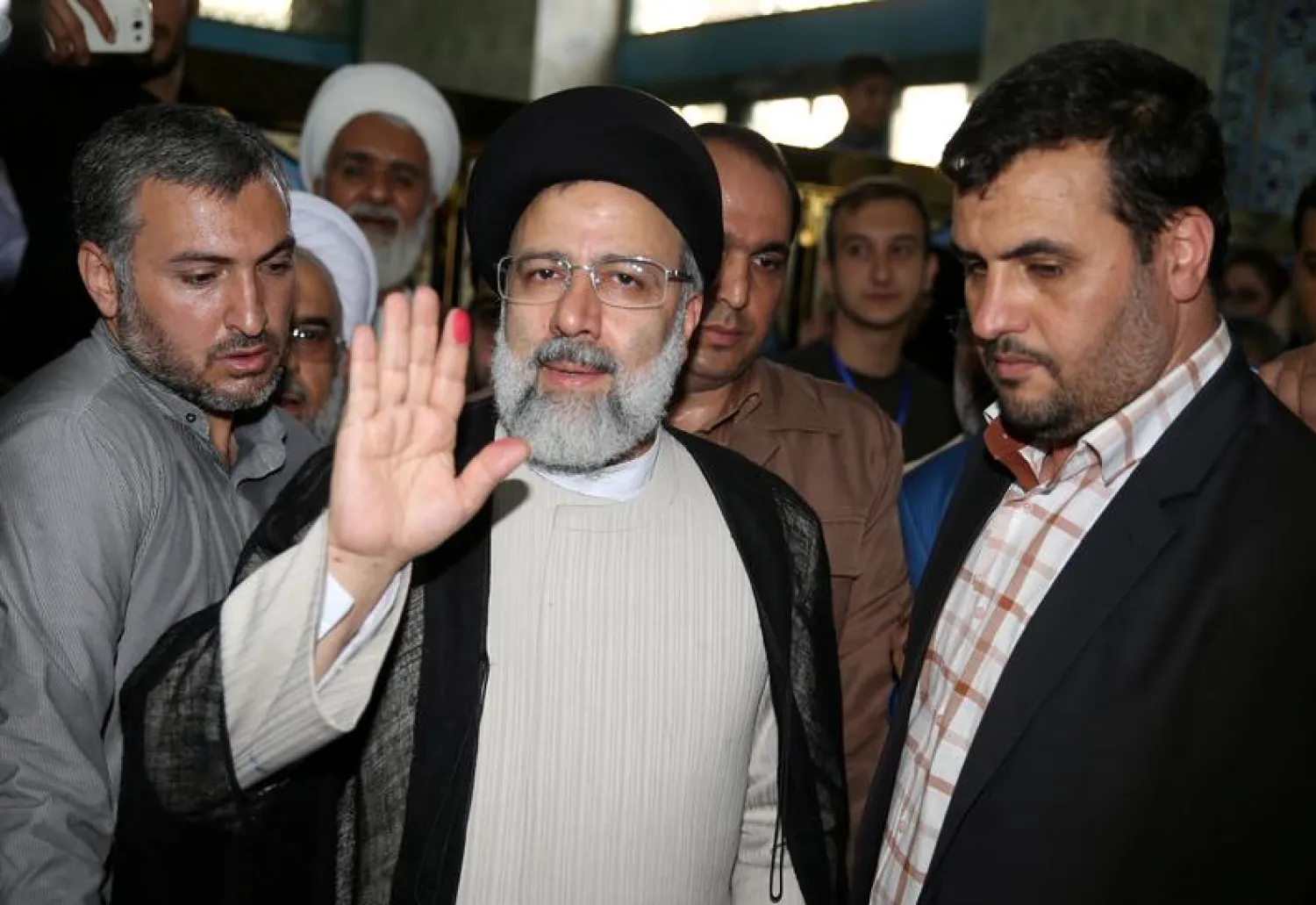Iran's head of the judiciary, Ibrahim Raisi, is currently the conservatives’ leading candidate, even though he has not officially announced his nomination for the presidential elections scheduled for next June.
Last week, the election committee announced it will receive candidacy applications between May 11 and 15, before the Guardian Council announces the final selection for the presidential race at the end of May.
The Combatant Clergy Association, Iran’s leading conservative clerical association, supports the candidacy of Raisi for the 2021 presidential election, announced its spokesman.
Spokesman Gholam Reza Mesbahi Moghadam indicated the association was launching the “Supreme Unity Committee” initiative between conservative parties to exchange proposals and reach a consensus on a candidate.
Over the past five years, Raisi was suggested as a possible candidate for the position of Supreme Leader, following Ali Khamenei, before running for the 2017 presidential elections against the current president, Hassan Rouhani.
A year after the elections, Khamenei issued a decree appointing Raisi as head of the judiciary.
ISNA agency reported that Mesbahi Moghadam also warned conservatives about Mahmoud Ahmadinejad's behavior, indicating that he is an independent candidate.
The spokesman implicitly denied reports that the association supports the candidacy of the former parliament speaker, Ali Larijani, stressing that there are no discussions on the matter.
Larijani's candidacy is expected to divide his conservative allies, especially since the reformist and moderate coalition, which supports Rouhani, may back the former speaker because of his support for the 2015 nuclear agreement.
Mesbahi Moghadam said that the government's performance in the nuclear deal “does not enjoy our support.”
Asked about the US President Joe Biden’s policy towards Iran, Mesbahi Moghadam said there was no difference between Biden and his opponents because the US had its own system.
"I don’t think the US approach to Iran has changed over 42 years."
Regarding the revival of the nuclear deal, he underlined that if Washington wants to rejoin the nuclear deal, as the Leader said, it needs to lift all sanctions on Iran.
Earlier, conservative politician Mohammad Javad Larijani said that the competition in the upcoming presidential elections includes his younger brother Ali Larijani, Speaker Mohammad Baqer Qalibaf, and Raisi.
Tasnim Agency asked him about the possibility of a shared presidency between the former speaker and the Foreign Minister, Mohammad Javad Zarif, and Larijani responded that there is no basis for that.
He downplayed the possibility of his brother receiving the support of the reformists.
Raisi was the judiciary's deputy chief and the Iranian public prosecutor, and he was one of the four Iranian officials who played a key role in the executions of thousands of political prisoners in the summer of 1988.









